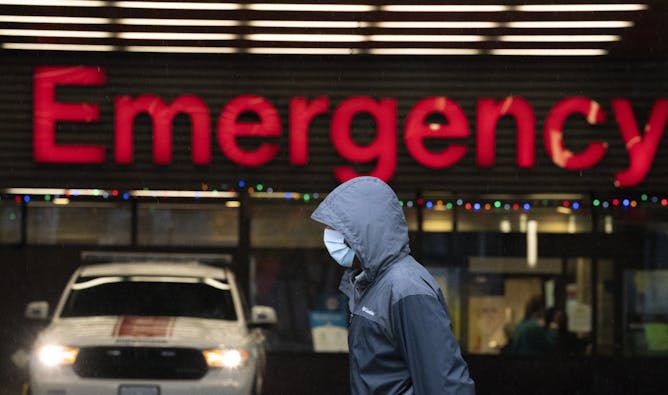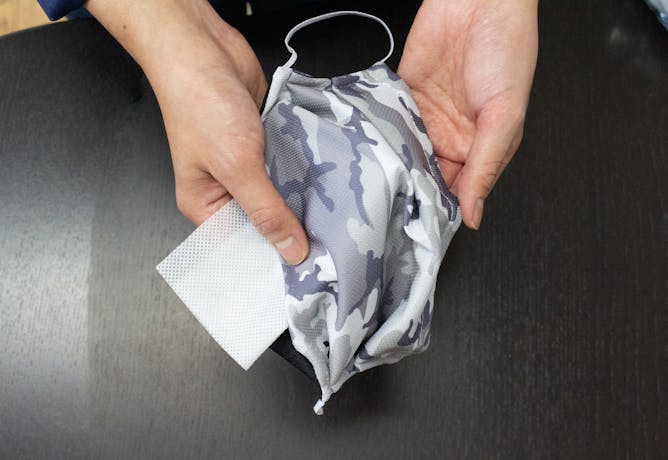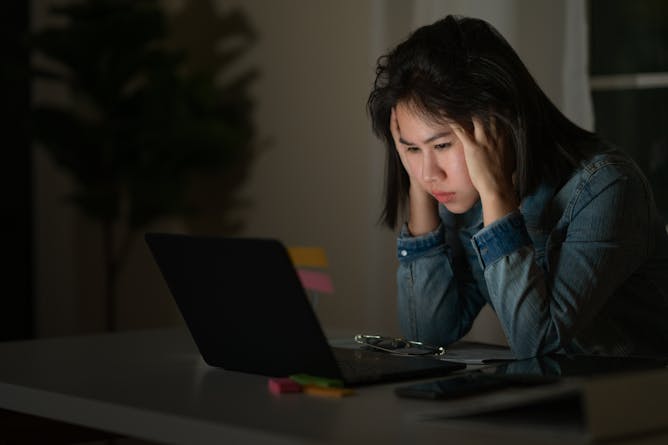|
Canada is in the midst of the second wave of COVID-19, and mass lockdowns and a devastating recession seem inevitable.
Today in The Conversation Canada, Blayne Haggart of Brock University issues a harsh critique of governments across Canada for their failure to contain the disease due to placing more importance on keeping businesses open than stopping community transmission.
He writes: “COVID-19 may be a natural phenomenon, but our economic wounds are almost entirely self-inflicted, driven by the faulty assumption of a trade-off between keeping the economy going and fighting the pandemic.” This faulty logic, he points out, has failed to grasp that containing the disease was the best way to save the economy over the long term, and literally means that some Canadians will continue to pay with their lives.
Also today:
All the best.
|

A person wears a protective face mask to help prevent the spread of COVID-19 as they walk past the emergency department of the Vancouver General Hospital on Nov. 18, 2020.
THE CANADIAN PRESS/Jonathan Hayward
Blayne Haggart, Brock University
Saving the economy requires minimizing, if not eliminating, community COVID-19 transmission.
|

New recommendation advise using an additional layer of polypropylene fabric in cloth masks to act as a filter.
(Sara Alas/Niko Apparel)
Catherine Clase, McMaster University; Charles-Francois de Lannoy, McMaster University; Scott Laengert, McMaster University
Everything you need to know about non-woven polypropylene, the fabric now recommended for use as a filter in cloth face masks: What it is, what to look for and where to find it.
|

Thermal image of New York City’s first passive house on a -10 C degree night.
(Shutterstock)
Richard leBrasseur, Dalhousie University
Changes to the way houses and other buildings are constructed could lower energy use and greenhouse gas emissions.
|

Canada’s Vasek Pospisil returns a shot to Italy’s Jannik Sinner, during the final match of the 2020 Sofia Open on Nov. 14, 2020.
(AP Photo)
Swarali Patil, Western University
The establishment of a professional tennis players' association that advocates on behalf of professional athletes brings to the foreground the conflict between athletes' needs and corporate interests.
|

Les étudiants universitaires ont des taux de détresse avoisinant les 60%. Il est urgent de leur venir en aide.
Shutterstock
Christiane Bergeron-Leclerc, Université du Québec à Chicoutimi (UQAC); Ariane Blackburn, Université du Québec à Chicoutimi (UQAC); Danielle Maltais, Université du Québec à Chicoutimi (UQAC)
Les étudiants universitaires ont des taux de détresse avoisinant les 60 %. Il est urgent de leur venir en aide.
|
Education
|
-
Kui Xie, The Ohio State University; Sheng-Lun Cheng, Sam Houston State University
More than 70% of college students engage in some form of procrastination, research shows.
|
|
Politics
|
-
Laura Hammond, SOAS, University of London
As ever, civilians are caught in the middle of warring ethnic groups in this strife-torn region of Ethiopia.
|
|
Science + Technology
|
-
Hanqing Jiang, Arizona State University; Zirui Zhai, Arizona State University
Curved origami isn't just elegant art. It's also a versatile way to vary the amount of force applied by robots and other machines.
|
|